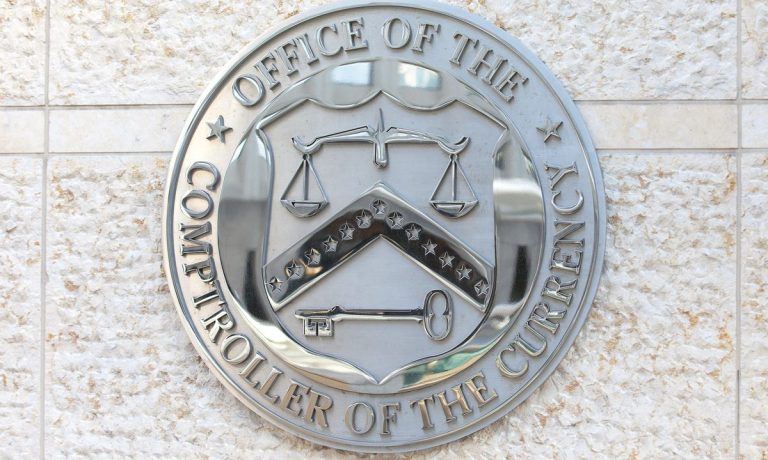Acting Comptroller Michael Hsu Says Bank-FinTech Partnerships Complicate Risk Monitoring

Michael Hsu, the acting comptroller of the currency, emphasized the importance of banks actively managing risks associated with their relationships with FinTech companies.
During a Wednesday (Feb. 21) speech at Vanderbilt University, Hsu highlighted the growing number of partnerships between nonbank FinTech companies and banks to provide banking services like checking and savings accounts to customers, Reuters reported Wednesday.
Hsu raised concerns about the potential for risk-monitoring responsibilities to become unclear when multiple firms with different incentives are involved, per the report.
“From a bank regulatory, micro-prudential perspective, our focus during this period must be to ensure that bank safety and soundness is maintained, consumers are protected and the playing field is level,” Hsu said, according to a transcript posted by the Office of the Comptroller of the Currency (OCC).
The speech reinforced the concern Hsu has expressed in the past about gaps in the regulation of the payments system and the need for regulators to ensure that banks are monitoring for risks stemming from these partnerships, according to the report.
Hsu’s remarks at Vanderbilt University come weeks after a consent order was issued to Blue Ridge Bank for failing to address previous issues flagged by regulators related to its FinTech partnerships, the report said.
The OCC has also made public two consent orders in January related to bank-FinTech partnerships, per the report.
While the OCC is open to applications from FinTech companies for a national bank charter, Hsu made it clear that these firms will not receive special treatment, according to the report. The regulator is committed to maintaining high standards and not creating a special regime for new entrants, he said Wednesday.
“As acting comptroller, my approach to national bank charters has been clear: We don’t chase,” Hsu said Wednesday. “If a FinTech wants a national bank charter, we welcome that and will review the application on its merits.”
The OCC has also highlighted the use of artificial intelligence (AI) in banking as an emerging risk faced by the federal banking system. While the adoption of AI offers significant benefits, widespread adoption may also present challenges related to compliance risk, credit risk, reputation risk and operational risk, the regulator said in December.